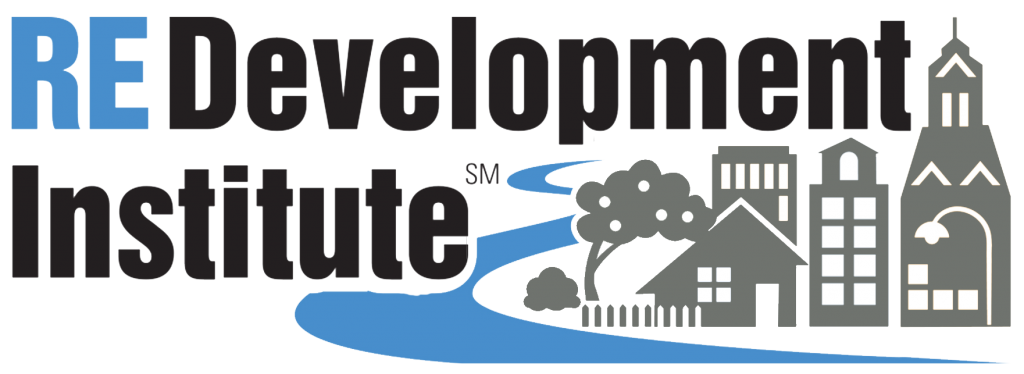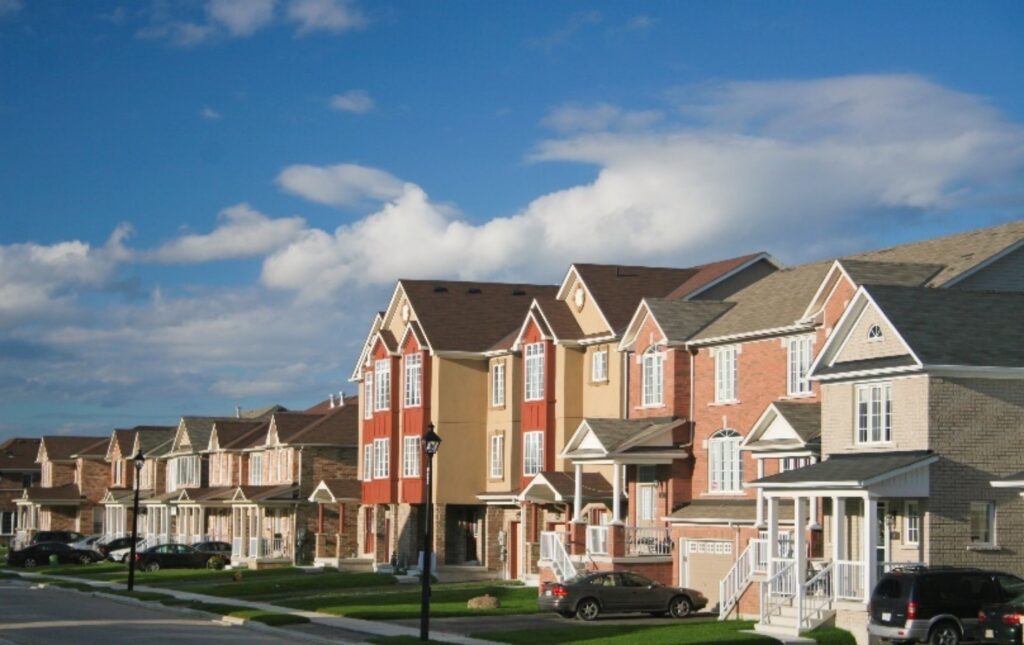The Real Estate Development Academy (RE-Development Academy) is hosting a series of webinars and a Brownfields Conference workshop focused on successful redevelopment practices at some of the toughest sites in the country. The changing economic climate and shifting real estate demand makes clear that former industrial and brownfield sites are critical building blocks for communities. While underutilized sites exist in desirable locations, properties continue to lie fallow and numerous impediments to redevelopment remain. Repositioning sites, managing risks and making sites available for redevelopment are key to helping communities grow, especially in areas largely characterized by blight, disinvestment, and vacancy.
The 2021 RE-Development Academy will build upon the 2019 RE-Development Academy programming and incorporate new tools and approaches offered by EPA’s Office of Brownfields and Land Revitalization. A certificate of completion would be issued at completion of the program.
The Fall 2021 webinar series focuses on the unique physical, environmental and market challenges associated with former industrial and brownfield sites, while helping participants to recognize the value and opportunities with these sites. The emphasis will be on new tools, positive solutions and demonstrated success stories.
The Brownfields University Workshop will provide an interactive forum for participants to apply the redevelopment tools to a particular site. Participants will learn how to reposition sites, manage risk and overcome challenges to attracting investment to brownfields sites.
THREE-WEBINAR SERIES “Catalyzing Redevelopment in Economically Distressed Areas”
Webinars will be delivered via CLU-IN to communities across the country. These 2-hour webinars are scheduled for: September 10, October 15, and November 19, 2021. Registration is now open for these free webinars.
Webinar 1: Removing the Barriers: Repositioning Brownfield Sites for Success
September 10, 2021, 1-3pm ET
Register
Repositioning can make the difference between redevelopments that succeed and those that fail – and it’s more than just marketing. Repositioning is a term used in the real estate world to describe actions that prepare a site for reuse or redevelopment. This is especially crucial with brownfields sites because environmental impacts can cause time delays and create unknown costs and liabilities. This webinar will discuss how to identify constraints on redevelopment by conducting a reuse assessment and the tools that can be used in the reuse planning process to remove or reduce those constraints. The discussion will not only address the typical environmental impediments found at brownfield sites, but also physical and legal issues that impact the ability to redevelop a property. The webinar will help participants to understand the different types of constraints, prioritize the ones that must be addressed prior to bringing a site to market, and recognizing those that a developer might be willing to take on upon purchase of the property. The webinar will include real-world examples that focus on tough sites in distressed communities.
Webinar 2: Risky Business: Overcoming Challenges to Attracting Investment at Brownfield Sites
October 15, 2021, 1-3pm ET
Register
In preparing to attract investment at brownfield sites, addressing risks upfront is key. Redevelopment of brownfields in economically distressed areas can present additional risks or constraints that are unique to the environmental and financial concerns of a project. These risks, whether they be environmental, physical or financial, can seem daunting. By taking a calculated approach, however, they can be managed and addressed as part of the redevelopment process. This webinar will discuss alternative ways to address risks and liabilities related to a brownfield property. In addition, in order to dispel the financial risks of a project, the webinar will also discuss the development of a brownfield investment package that provides property details in a way that attracts potential investment. Examples of risk management approaches and brownfield investment packages will be provided, as well as a discussion of useful tools to support the risk management process and attracting investment for sites in economically distressed areas.
Webinar 3: Show Me How: Brownfields Redevelopment in Economically Distressed Areas
November 19, 2021, 1-3pm ET
Register
Everyone loves a success story, but the real story is in the details. This webinar will focus on successful brownfield redevelopments in economically distressed areas. Each story will explain site conditions prior to redevelopment; the tools and approaches used to identify opportunities and constraints and reposition the property; market activities and how buyers were identified; and the deal negotiation process. Developers and an environmental insurance broker will discuss how environmental risk and other liabilities were extinguished or controlled through the redevelopment process. Participants will gain a better understanding of possible solutions and approaches to the common challenges experienced at brownfields sites. Emphasis will be on how to attract developers and the tools needed to do it.
Brownfields University Workshop, National Brownfields Training Conference
Repositioning and Redevelopment of Tough Sites – Helping Communities Succeed in Attracting Private Investment Using the New OBLR Guide “Creating a Brownfields Investment Package”
As part of the Brownfields University at Oklahoma National Brownfields Conference, the RE-Development Academy will offer a follow-up workshop to the webinar series on December 8, 2021.
Register through the National Brownfields Conference website
Enter the world of high stakes brownfield redevelopment through a collaborative and interactive workshop. This four-hour workshop places participants in the role of the community/owner of a complex property working through the process of creating value and positioning the property for redevelopment. Participants will need to evaluate the property, develop a viable reuse plan, consider public funding sources and attract a developer. Working in teams of four, participants will identify needs and objectives for the property, conduct a reuse assessment, develop a reuse implementation strategy, and compete with other community/owners for a developer! Multiple developers will be available to interact with the community/owner teams.

